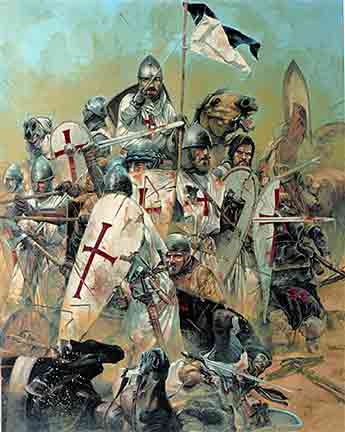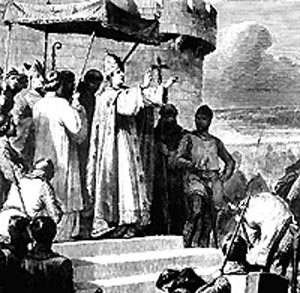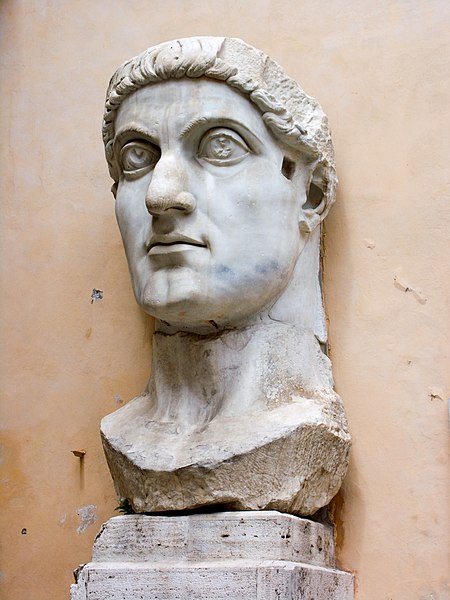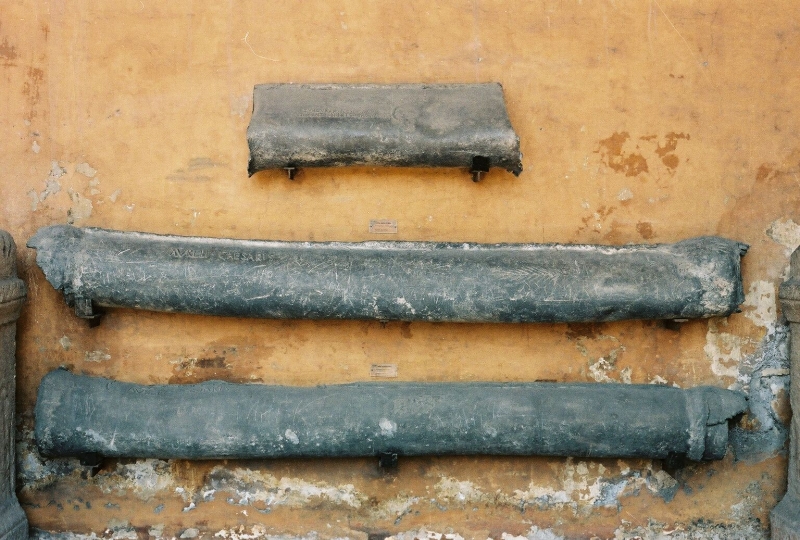
The Investiture Controversy was a political crisis in the 11th century, in which the pope and the emperor of the Holy Roman Empire argued about, essentially, which of them had the supreme power over the other. It also refers to related controversies in other European countries, most notably in England, regarding the dual allegiance of bishops to their sovereign and to the pope. It is also considered as the most significant conflict between secular and religious powers in medieval Europe.
It began as a dispute between the Holy Roman Emperor and the Gregorian Papacy concerning who would control appointments of church officials. Pope Gregory VII condemned lay investiture in 1078 as an unjustified assertion of secular authority over the church; the issue was pivotal in his dispute with King Henry IV and in the larger struggle over Henry's refusal to obey papal commands. Henry successfully drove Gregory from Rome and installed an anti pope, but it would be Gregory's rejection of lay investiture that would ultimately prevail. Henry I of England renounced lay investiture in return for the guarantee that homage would be paid to the king before consecration. The Concordat of Worms forged a similar compromise between Henry V and Calixtus II. (Book Internet) The controversy, undercutting the Imperial power established by the Salian Emperors would eventually lead to nearly fifty years of civil war in Germany, the triumph of the great dukes and abbots, and the disintegration of the German empire, a condition from which it would not recover until the reunification of Germany in the 19th century.
 - - - - - - - - - - - - - - - - - -The Holy Roman Empire - - - - - - - - - - - - - - - - - -
- - - - - - - - - - - - - - - - - -The Holy Roman Empire - - - - - - - - - - - - - - - - - -"The Investiture Controversy had some far-reaching effects. The Church was now under the control of a professional elite and had established the principle that non-professionals shouldn't have any say in how the Church ran its affairs. When the Protestants rebelled against the Catholic Church four hundred years later, one of the things that they demanded was that lay people should have a big role in running the Church. Then, too, the Church had gained its ends through politics and had to continue playing politics. "
The Investiture Controversy also effect Germany. (Book Internet) In Germany, the authority of the emperors had been damaged to the point that the region didn't develop a national government until 1870 with a war against France. The First and Second World Wars, which took about 100,000,000 lives, were continuations of that first conflict. As a result of this it could be said that there wouldn't have been any Adolf Hitler if there hadn't been an Investiture Controversy.
This is what the Investiture Controversy was and how it change the balance of power between the papal authority and the leadership of Europe.









 Paul Preaching in Rome
Paul Preaching in Rome General Constantine
General Constantine
